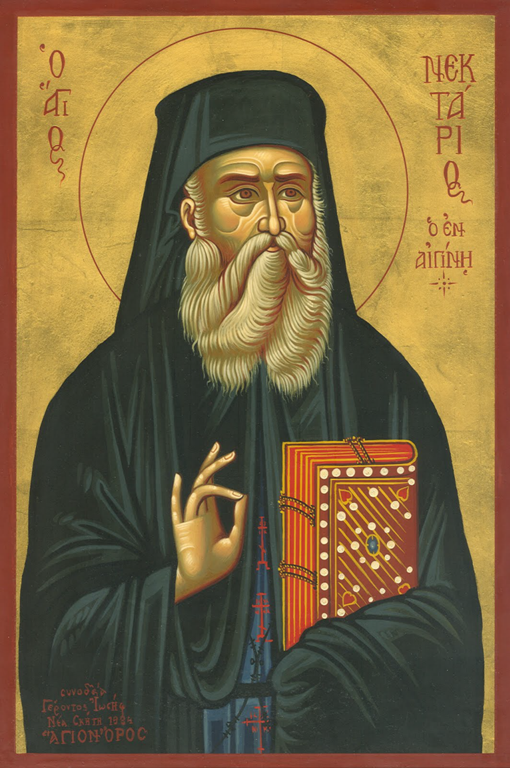Fragments of Papia di Gerapoli
Código VH01-E0045-I
VIEW:460 DATA:2020-03-20

Papia di Gerapoli - Frammenti
Fragments of Papias
Papias
Introductory Note to the Fragments of Papias
[a.d. 70-155.] It seems unjust to the holy man of whose comparatively large contributions to early Christian literature such mere relics have been preserved, to set them forth in these versions, unaccompanied by the copious annotations of Dr. Routh. If even such crumbs from his table are not by any means without a practical value, with reference to the Canon and other matters, we may well credit the testimony (though disputed) of Eusebius, that he was a learned man, and well versed in the Holy Scripture.1729 All who name poor Papias are sure to do so with the apologetic qualification of that historian, that he was of slender capacity. Nobody who attributes to him the millenarian fancies, of which he was but a narrator, as if these were the characteristics rather than the blemishes of his works, can fail to accept this estimate of our author. But more may be said when we come to the great name of Irensus, who seems to make himself responsible for them.1730
Papias has the credit of association with Polycarp, in the friendship of St. John himself, and of others who had seen the Lord. He is said to have been bishop of Hierapolis, in Phrygia, and to have died about the same time that Polycarp suffered; but even this is questioned. So little do we know of one whose lost books, could they be recovered, might reverse the received judgment, and establish his claim to the disputed tribute which makes him, like Apollos, an eloquent man, and mighty in the Scriptures.
The following is the original Introductory Notice:
The principal information in regard to Papias is given in the extracts made among the fragments from the works of Irensus and Eusebius. He was bishop of the Church in Hierapolis, a city of Phrygia, in the first half of the second century. Later writers affirm that he suffered martyrdom about a.d. 163; some saying that Rome, others that Pergamus, was the scene of his death. He was a hearer of the Apostle John, and was on terms of intimate intercourse with many who had known the Lord and His apostles. From these he gathered the floating traditions in regard to the sayings of our Lord, and wove them into a production divided into five books. This work does not seem to have been confined to an exposition of the sayings of Christ, but to have contained much historical information.
See Lardner, ii. p. 119.
Against Heresies, book v. chap. xxxiii. See the prudent note of Canon Robertson (History of the Christ. Church, vol. i.
p. 116).
Eusebius1 speaks of Papias as a man most learned in all things, and well acquainted with the Scriptures. In another passage2 he describes him as of small capacity. The fragments of Papias are translated from the text given in Rouths Reliquia Sacra, vol. i.3
Fragments of Papias
I. From the exposition of the oracles of the Lord.4
[The writings of Papias in common circulation are five in number, and these are called an Exposition of the Oracles of the Lord. Irensus makes mention of these as the only works written by him, in the following words: Now testimony is borne to these things in writing by Papias, an ancient man, who was a hearer of John, and a friend of Polycarp, in the fourth of his books; for five books were composed by him. Thus wrote Irensus. Moreover, Papias himself, in the introduction to his books, makes it manifest that he was not himself a hearer and eye-witness of the holy apostles; but he tells us that he received the truths of our religion5 from those who were acquainted with them [the apostles] in the following words:]
But I shall not be unwilling to put down, along with my interpretations,6 whatsoever instructions I received with care at any time from the elders, and stored up with care in my memory, assuring you at the same time of their truth. For I did not, like the multitude, take pleasure in those who spoke much, but in those who taught the truth; nor in those who related strange commandments,7 but in those who rehearsed the commandments given by the Lord to faith,8 and proceeding from truth itself. If, then, any one who had attended on the elders came, I asked minutely after their sayings,what Andrew or Peter said, or what was said by Philip, or by Thomas, or by James, or by John, or by Matthew, or by any other of the Lords disciples: which things9 Aristion and the presbyter John, the disciples of the Lord, say. For I imagined that what was to be got from books was not so profitable to me as what came from the living and abiding voice.
II.10
[The early Christians] called those who practised a godly guilelessness,11 children, [as is stated by Papias in the first book of the Lords Expositions, and by Clemens Alexandrinus in his Pedagogue.]
0070-0130,_Papia_Hierapolitanus,_Fragmenta_[Schaff],_EN.pdf


BUSCADAVERDADE
Visite o nosso canal youtube.com/buscadaverdade e se INSCREVA agora mesmo! Lá temos uma diversidade de temas interessantes sobre: Saúde, Receitas Saudáveis, Benefícios dos Alimentos, Benefícios das Vitaminas e Sais Minerais... Dê uma olhadinha, você vai gostar! E não se esqueça, dê o seu like e se INSCREVA! Clique abaixo e vá direto ao canal!
Saiba Mais
-
 Nutrição
Nutrição
Vegetarianismo e a Vitamina B12 -
 Receita
Receita
Como preparar a Proteína Vegetal Texturizada -
 Arqueologia
Arqueologia
Livro de Enoque é um livro profético?
Tags
tag

